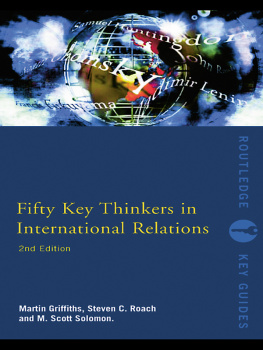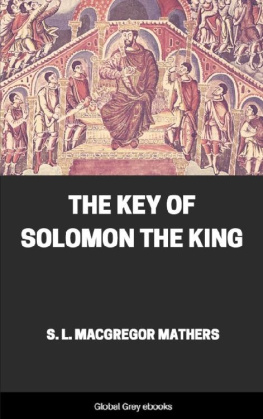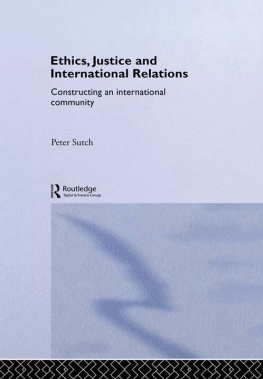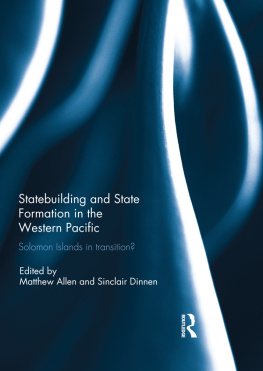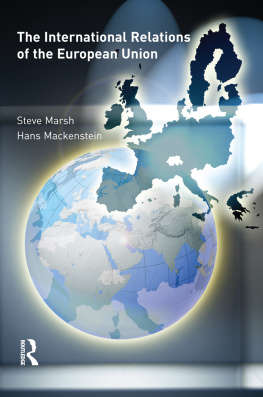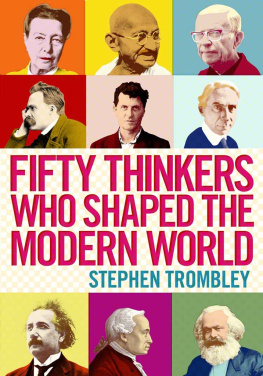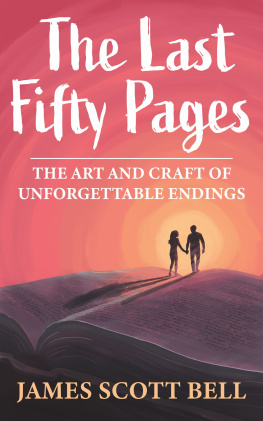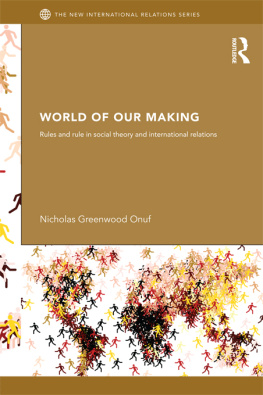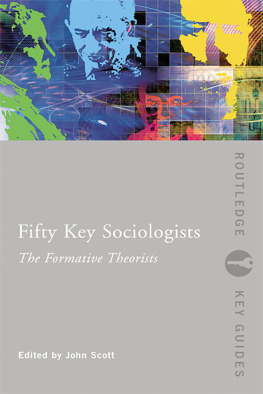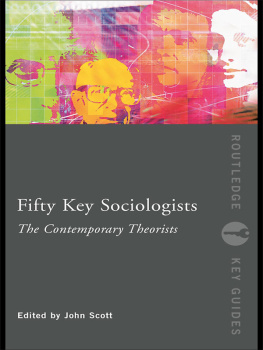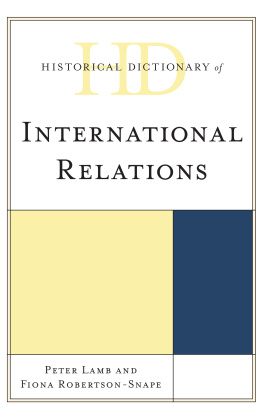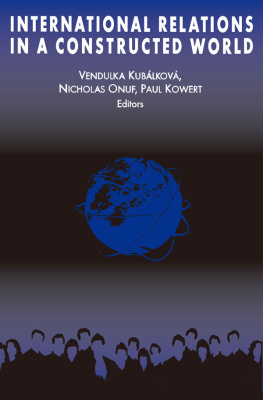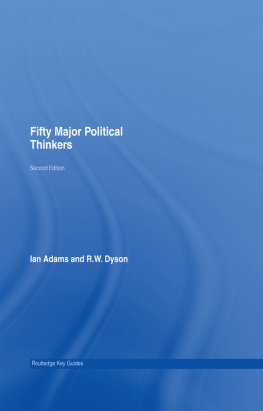Solomon M. Scott - Fifty key thinkers in international relations
Here you can read online Solomon M. Scott - Fifty key thinkers in international relations full text of the book (entire story) in english for free. Download pdf and epub, get meaning, cover and reviews about this ebook. City: London, year: 2010, publisher: Routledge, genre: Politics. Description of the work, (preface) as well as reviews are available. Best literature library LitArk.com created for fans of good reading and offers a wide selection of genres:
Romance novel
Science fiction
Adventure
Detective
Science
History
Home and family
Prose
Art
Politics
Computer
Non-fiction
Religion
Business
Children
Humor
Choose a favorite category and find really read worthwhile books. Enjoy immersion in the world of imagination, feel the emotions of the characters or learn something new for yourself, make an fascinating discovery.
- Book:Fifty key thinkers in international relations
- Author:
- Publisher:Routledge
- Genre:
- Year:2010
- City:London
- Rating:5 / 5
- Favourites:Add to favourites
- Your mark:
- 100
- 1
- 2
- 3
- 4
- 5
Fifty key thinkers in international relations: summary, description and annotation
We offer to read an annotation, description, summary or preface (depends on what the author of the book "Fifty key thinkers in international relations" wrote himself). If you haven't found the necessary information about the book — write in the comments, we will try to find it.
Fifty key thinkers in international relations — read online for free the complete book (whole text) full work
Below is the text of the book, divided by pages. System saving the place of the last page read, allows you to conveniently read the book "Fifty key thinkers in international relations" online for free, without having to search again every time where you left off. Put a bookmark, and you can go to the page where you finished reading at any time.
Font size:
Interval:
Bookmark:
Now in its second edition, Fifty Key Thinkers in International Relations has been thoroughly updated with 14 new entries and a new preface to reflect the latest developments. There are new sections on Constructivism, International Political Theory, and English School, as well as a range of new thinkers. They include:
- Samuel Huntington
- Jrgen Habermas
- Barry Buzan
- Christine Sylvester
- John Rawls.
Fully cross-referenced throughout, this book has everything for students of politics and international relations or indeed anyone who wants to gain an understanding of how nations can work together successfully.
Martin Griffiths is Associate Professor in the School of Political and International Studies at Flinders University, Australia. He is the author of International Relations Theory for the 21st Century (2007), Realism, Idealism, and International Politics (1995), and co-author (with Terry O'Callaghan and Steven C. Roach) of International Relations: The Key Concepts, Second Edition (2007), all available from Routledge.
Steven C. Roach is Assistant Professor of International Affairs in the Department of Government and International Affairs at the University of South Florida. Among his books are Critical Theory of International Politics (Routledge, forthcoming), Governance, Order, and the International Criminal Court (2009), Critical Theory and International Relations: A Reader (Routledge, 2007), and Politicizing the International Criminal Court (2006).
M. Scott Solomon is Assistant Professor of International Affairs in the Department of Government and International Affairs at the University of South Florida. He is the co-author (with Mark Rupert) of Globalization and International Political Economy: The Politics of Alternative Futures (2006).
- Economics: The Basics
- Tony Cleaver
- 978-0-415-31412-1
- The Routledge Companion to Global Economics
- Edited by Robert Benyon
- 978-0-415-24306-3
- Fifty Major Economists
- Steven Pressman
- 978-0-415-13481-1
- Fifty Major Political Thinkers
- Ian Adams and R.W. Dyson
- 978-0-415-40099-2
- Fifty Key Thinkers on the Environment
- Joy Palmer
- 978-0-415-14699-9

First published 1999
by Routledge
This edition published 2009
by Routledge
2 Park Square, Milton Park, Abingdon, Oxon OX14 4RN
Simultaneously published in the USA and Canada
by Routledge
270 Madison Ave, New York, NY 10016
Routledge is an imprint of the Taylor & Francis Group, an informa business
This edition published in the Taylor & Francis e-Library, 2008.
To purchase your own copy of this or any of Taylor & Francis or Routledges collection of thousands of eBooks please go to www.eBookstore.tandf.co.uk.
1999 Martin Griffiths, 2009 Martin Griffiths, Steven C. Roach, M. Scott Solomon
All rights reserved. No part of this book may be reprinted or reproduced or utilised in any form or by any electronic, mechanical, or other means, now known or hereafter invented, including photocopying and recording, or in any information storage or retrieval system, without permission in writing from the publishers.
British Library Cataloguing in Publication Data
A catalogue record for this book is available from the British Library
Library of Congress Cataloging in Publication Data
A catalogue record for this book has been requested
ISBN 0-203-88599-6 Master e-book ISBN
ISBN10: 0-415-77570-1 (hbk)
ISBN10: 0-415-77571-X (pbk)
ISBN10: 0-203-88687-9 (ebk)
ISBN13: 978-0-415-77570-0 (hbk)
ISBN13: 978-0-415-77571-7 (pbk)
ISBN13: 978-0-203-88687-8 (ebk)
Since the publication of the first edition of Fifty Key Thinkers in International Relations, the field of international relations has undergone significant transformation. Constructivism, for instance, which was not listed as a section in the first edition, is now a fairly well established paradigm in international relations. In addition, feminism has continued to emerge as a prominent radical approach in international relations, as has postmodernism and critical theory (in the Frankfurt School tradition). Aside from these changes within the discipline, outside events have dramatically reshaped the international landscape and, in the process, inspired and encouraged international relations scholars and practitioners to rethink the issues and problems. This second edition is an attempt to showcase some of the key thinkers who have, or continue to, shed new theoretical and empirical light on international events of the past 10 years (the Kosovo War, the 9/11 attacks and the War on Terror) and on new trends within the discipline. In doing so, it treats the field of international relations theory as an engaged, yet pluralist study of the struggles for power in the international realm. However, it recognizes that international relations is a field in search of a reflexive, overarching paradigm, even a pluralist rigour that would frame the contributions of many different, competing approaches. As this apparent crisis in the discipline suggests, there are many new challengers to the existing conventional paradigms, with no one thinker standing out from the others. This second edition also reflects the need to incorporate the increasing influence of new thinkers and their attendant ideas and key theoretical approaches. Accordingly, we have added the following new sections to reflect the recent methodological developments in the field: Constructivism, the English School, and International Political Theory/International Ethics. We have also moved Theories of International Society, which appeared in the first edition, to the English School, and deleted International Organization and Theories of the Nation to make room for the three new sections. In all, we have added 14 new thinkers.
Like the first edition, this second edition seeks to capture the complexity and allure of international relations through the lenses of its most influential thinkers. There will always be some thinkers deserving some special recognition. But whether one agrees with David Helds or Andrew Linklaters cosmopolitan ethics, it is important to recognize the wide-ranging influence of their cosmopolitan models. In the same way, Alexander Wendts social theory of international politics has significantly influenced our thinking about the relationship between state power and socialization. One might also add to this list the political theorists who continue to remain important sources of thinking about the ethics and moral principles of the international system, including John Rawls and Jrgen Habermas. In formulating the criteria below, we have sought to dampen much of the controversy. Our criteria are based on two very open-ended, general questions: Which thinkers have introduced and formulated new and sustainable insights into international relations? And how have these insights generated new niches and models for constructing knowledge of international relations? In time, these questions ultimately gave way to four key criteria for selecting a key thinker: (1) depth, (2) novelty, (3) applicability and (4) imagination.
Font size:
Interval:
Bookmark:
Similar books «Fifty key thinkers in international relations»
Look at similar books to Fifty key thinkers in international relations. We have selected literature similar in name and meaning in the hope of providing readers with more options to find new, interesting, not yet read works.
Discussion, reviews of the book Fifty key thinkers in international relations and just readers' own opinions. Leave your comments, write what you think about the work, its meaning or the main characters. Specify what exactly you liked and what you didn't like, and why you think so.

